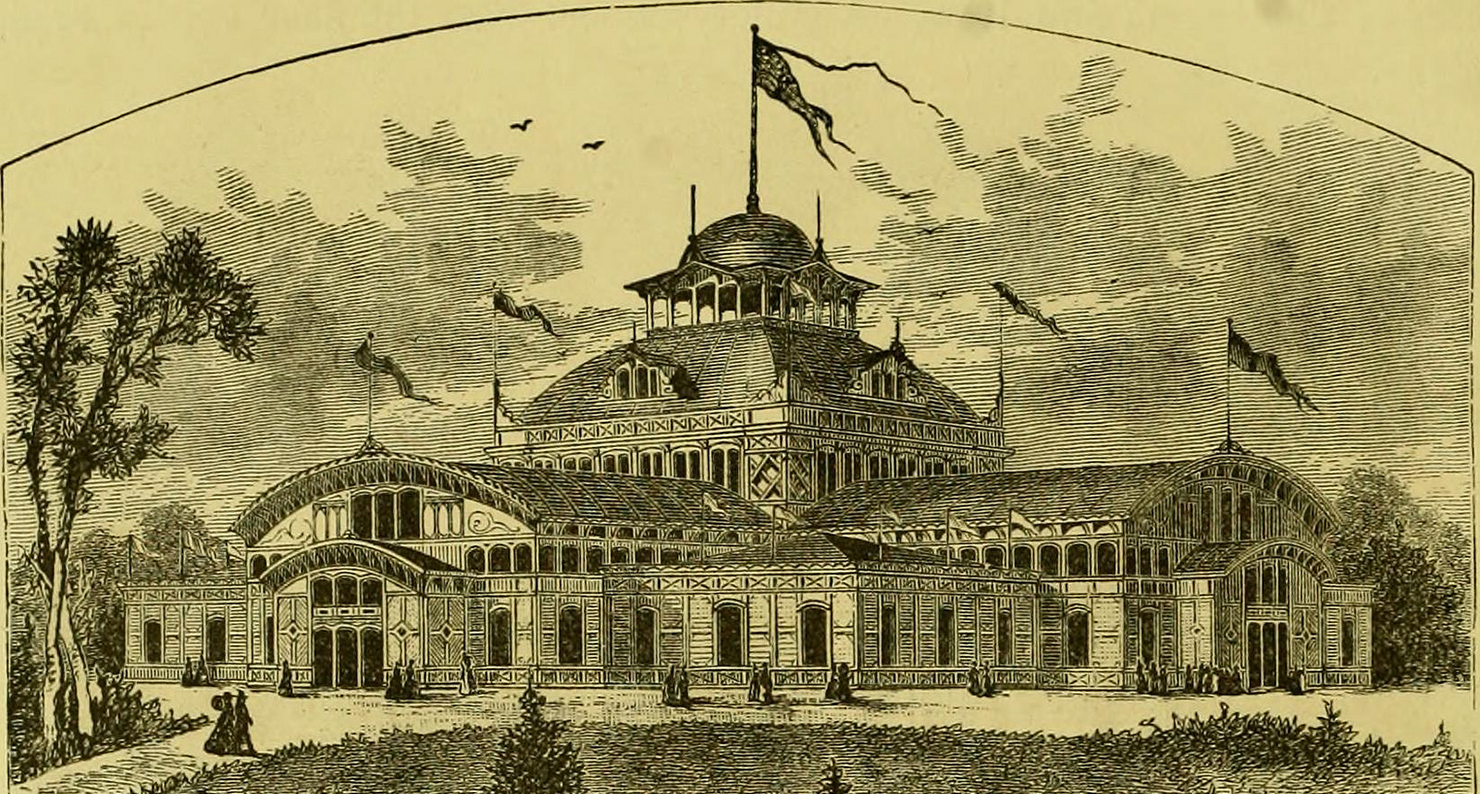
The Women’s Pavilion at the United States’ first world fair, Philadelphia, 1876, from Philadelphia and Its Environs. Library of Congress.
• Emma Allison, inventor of the Baxter engine, took center stage at the 1876 Centennial Exhibition in Philadelphia, where she manned her “iron pet” from the Women’s Pavilion: “While some questioners expressed dismay that a woman could do such work, Allison replied that it was easier than being a nursemaid and less tiring than bending over a stove. She took the point further and criticized how male engineers kept slovenly machine rooms, something that women engineers would presumably not tolerate…The next U.S. World’s Fair, in New Orleans in 1884–1885, denied its Women’s Committee a separate structure and gave them less exhibit space than in Philadelphia by placing the displays in a wing of the U.S. Government Building.” (The New Inquiry)
• A four-thousand-year-old smiley face, possibly the world’s oldest, was just found on a Hittite pot. (Times of Israel)
• Reconsidering the depth of Duchamp’s toilet: “Surprisingly, no one ever made a direct connection between America’s declaration of war on Germany on April 6, 1917, and Duchamp’s declaration of war on traditional art and its value systems a mere two or three days later. Surely that has something to do with the still-commanding formalism in the art world, especially the elite, theoretically dominated art world, preventing us from grasping how the most acclaimed artwork of the twentieth century, famous for its Dada overturning of conventional aesthetics, could also and at the same time have been a blistering counter-response to America’s brash entrance into the global war.” (OUPblog)
• In ancient Rome, citrus fruits were status symbols—especially the citron and lemon: “These two fruits hogged the limelight for centuries.” (Atlas Obscura)
• A narrated account of John Keats’ short life: “Fighting was to John Keats like eating or drinking. He sought out aggressive boys, cruel boys, but their company, as he was already inclined to poetry, must have provided some comic and burlesque treats. For mere brutality—without humor, make-believe, or whimsy—didn’t interest him. Which might lead a person to extrapolate that boys aren’t truly brutal. Yes, they are, but they have rules and an aesthetic.” (NYR Daily)
• Hypnopaedia, using oboe as a verb, and more of Aldous Huxley’s neologisms, investigated. (OxfordWords)